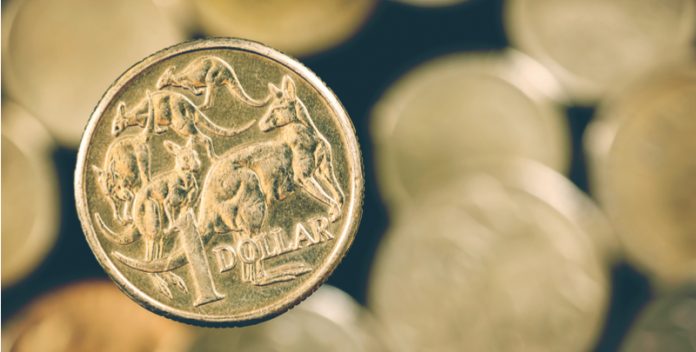The British pound is higher against the Australian dollar on Friday.
Sterling has built on the hefty gains made yesterday over the Aussie with more strength to finish the week.
The Aussie weakness owes to concerns that Australia could be on the losing end of a rekindled trade war between the US and China.
Pound to Australian dollar was up by 127 pips (+0.65%) to 1.9461 as of 2pm GMT.
GBP/AUD took out 1.94 to the upside in early trading and made quick progress toward 1.95 but came 3 pips shy and pulled back. Yesterday the exchange rate rose 1.7%, meaning a weekly return of +0.55%.
GBP: Continues rebound from 10-day losing streak
The pound as a perceived riskier currency was mostly lower but was able to continue progress started yesterday against the Aussie after a 10-day losing streak.
Investors have been pricing in a speedier recovery in Australia than in the UK on the logic that there have been fewer coronavirus cases and fatalities, and that the social distancing measures could be eased quicker in Australia.
That idea won’t hold up if China, Australia’s key export market is again under assault from new tariffs from the United States. US President Trump said in yesterday’s coronavirus briefing that his administration’s main priority will be to investigate the behaviour of China during the virus outbreak.
AUD: US China trade war erupts again
Australian Prime Minister Scott Morrison was one of the first global leaders to call for the World Health Organisation to support an inquiry into the origin of the coronavirus. Morrison’s suggestion appeared to anger Beijing and has been a source of a rising diplomatic spat between the two countries.
Understanding what caused the global pandemic is clearly in the interests of the world population. However from a political standpoint , an inquiry does imply not taking China’s limited official explanation for the outbreak as golden.
The risks for Australia are twofold, that China takes direct measures against it for supporting the coronavirus inquiry, and the US adds new tariffs to China, meaning weaker demand for Australia’s exports to China.





